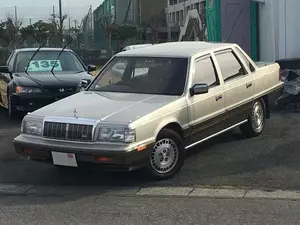
| Vehicle | Curb weight | Difference from world's smallest | Weight to power ratio | 0—60 mph acceleration ratio | Consumption ratio |
|---|---|---|---|---|---|
| 3.0 i V6 |
1590 kg / 3506 lbs |
1165 kg (2569 lbs) heavier | 9 kg to 1 hp | - |
181 kg/L (399 lbs/L) |
| 3.5 i V6 24V |
1780 kg / 3925 lbs |
1355 kg (2988 lbs) heavier | 7 kg to 1 hp | - |
185 kg/L (408 lbs/L) |
| Vehicle | 3.0 i V6 |
|---|---|
| Curb weight |
1590 kg / 3506 lbs |
| Difference from world's smallest | 1165 kg (1165 lbs) heavier |
| Weight to power ratio | 9 kg to 1 hp |
| 0—60 mph acceleration ratio | - |
| Consumption ratio |
181 kg/L (399 lbs/L) |
| Vehicle | 3.5 i V6 24V |
| Curb weight |
1780 kg / 3925 lbs |
| Difference from world's smallest | 1355 kg (1355 lbs) heavier |
| Weight to power ratio | 7 kg to 1 hp |
| 0—60 mph acceleration ratio | - |
| Consumption ratio |
185 kg/L (408 lbs/L) |